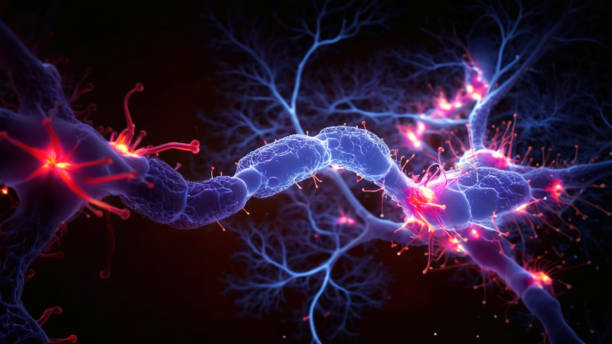Sleep is not just rest. It is medicine for the brain, a nightly therapy session, and a silent guardian of our mental well-being. When we close our eyes and drift into slumber, an orchestra of biological processes begins to play, restoring balance to our minds and bodies. Yet, in today’s fast-paced world, sleep is often neglected, sacrificed to work, entertainment, or endless scrolling. What many don’t realize is that sleep is not a luxury—it is a lifeline.
Without it, our mental health suffers in ways both subtle and profound. With it, our minds are sharper, calmer, more resilient, and more creative. In fact, science shows that sleep is one of the most powerful tools we have for maintaining emotional stability, cognitive function, and psychological strength.
Here, we’ll explore 15 scientifically proven ways sleep improves mental health. Each one reveals the incredible partnership between sleep and the human mind, showing why this nightly ritual is essential not just for survival, but for thriving.
1. Sleep Restores Emotional Balance
When you’re sleep-deprived, even small problems feel overwhelming. This is because lack of sleep disrupts the brain’s emotional regulation system, particularly the amygdala—the part responsible for fear and stress responses. Studies show that during adequate sleep, the prefrontal cortex (the rational part of the brain) calms the amygdala, preventing overreactions. Without enough rest, emotions spiral out of control, leading to irritability, mood swings, and heightened anxiety.
Simply put, sleep restores emotional balance. It allows us to face life’s challenges with calmness rather than panic, and patience instead of anger.
2. Sleep Reduces Stress and Anxiety
Stress is part of life, but sleep is nature’s antidote. When we sleep, our bodies lower levels of cortisol, the stress hormone, while releasing growth hormones that repair cells. The brain also recalibrates the nervous system, reducing overactivity in regions linked to anxiety.
Deep sleep stages act like a reset button, soothing mental tension. In fact, research has shown that a single night of poor sleep can increase anxiety levels by as much as 30%. On the other hand, good-quality sleep provides resilience, helping us cope with pressures without feeling overwhelmed.
3. Sleep Boosts Cognitive Function
Cognition—the ability to think, learn, and solve problems—relies heavily on sleep. While we sleep, the brain consolidates information from the day, turning short-term memories into long-term ones. Neural pathways are strengthened, and unnecessary information is pruned, leaving the mind sharper and more efficient.
This process is why sleep-deprived students struggle to study, and why adults who consistently sleep well perform better at work. Without sleep, decision-making falters, attention drifts, and creativity fades. With it, our mental faculties are at their peak.
4. Sleep Enhances Memory
Memory and sleep are inseparable partners. During deep slow-wave sleep, the hippocampus (the brain’s memory center) replays recent experiences, transferring them to the neocortex for long-term storage. This is why studying right before bed or after a nap can improve recall.
Dream sleep, or REM (rapid eye movement) sleep, is also crucial. It helps link memories together, weaving them into broader narratives that aid understanding and creativity. Without sufficient sleep, memories slip away, and learning suffers. With it, we not only remember more but understand better.
5. Sleep Fuels Creativity
Ever woken up with a sudden solution to a problem? That’s the power of sleep-driven creativity. During REM sleep, the brain forms unique connections between unrelated ideas, enhancing innovation and imagination. This is why many artists, writers, and scientists credit dreams and sleep for their breakthroughs.
Research shows that people who sleep well score higher on tests of divergent thinking—the ability to generate creative solutions. Whether you’re writing poetry, inventing technology, or navigating complex problems, sleep is a hidden partner in your creative process.
6. Sleep Strengthens Mental Resilience
Resilience is the ability to bounce back from adversity. Sleep is one of the strongest predictors of resilience because it helps regulate mood, lowers stress, and improves problem-solving abilities. Well-rested individuals are less likely to be derailed by challenges, while sleep-deprived people are more prone to hopelessness and frustration.
In clinical psychology, improving sleep is often one of the first steps in therapy, precisely because it strengthens mental fortitude. Good sleep is not just recovery—it is training for life’s battles.
7. Sleep Improves Focus and Attention
Attention is a limited resource, and sleep replenishes it. Studies show that even mild sleep deprivation dramatically impairs concentration, reaction time, and vigilance. This is why driving while drowsy is as dangerous as driving drunk.
On the flip side, consistent, restorative sleep sharpens focus, making tasks easier to complete and goals easier to achieve. For students, professionals, and anyone juggling multiple responsibilities, sleep is not wasted time—it is an investment in productivity.
8. Sleep Helps Process Emotions
Dreaming is more than fantasy—it is emotional therapy. During REM sleep, the brain replays emotional experiences in a safe, chemically calm environment. Stress-related neurotransmitters drop, allowing us to reprocess memories without reliving the same intensity of emotion.
This process helps us heal from trauma, heartbreak, or stressful events. In fact, REM sleep has been called “overnight therapy” because it allows us to wake up feeling lighter, calmer, and more at peace with our experiences.
9. Sleep Supports Mental Health Disorders
Poor sleep and mental health disorders are deeply connected. Insomnia, for example, often appears before depression and anxiety, acting as both a symptom and a cause. Conversely, improving sleep has been shown to significantly reduce symptoms of depression, PTSD, and bipolar disorder.
Cognitive Behavioral Therapy for Insomnia (CBT-I) is one of the most effective treatments for sleep issues, and it often improves overall mental health as well. By addressing sleep, we indirectly treat many psychological conditions, highlighting how central it is to wellness.
10. Sleep Increases Emotional Intelligence
Emotional intelligence—the ability to understand and manage emotions—is enhanced by sleep. Rest allows us to read facial expressions more accurately, respond with empathy, and avoid misinterpreting social cues. Sleep deprivation, on the other hand, reduces empathy and makes us more prone to conflict.
In personal relationships, this can mean the difference between harmony and discord. In professional settings, it can impact leadership, teamwork, and negotiation. Sleep sharpens our emotional awareness, making us better partners, friends, and leaders.
11. Sleep Reduces Risk of Burnout
Burnout—chronic physical and mental exhaustion—is a growing problem in modern society. Sleep is a powerful shield against it. By restoring energy, balancing hormones, and supporting emotional health, sleep prevents the gradual decline into apathy, fatigue, and despair that characterizes burnout.
Studies in healthcare workers, teachers, and corporate employees consistently show that good sleep reduces burnout rates, while poor sleep accelerates them. Prioritizing rest is not laziness—it is sustainable living.
12. Sleep Boosts Motivation
Have you ever noticed how everything feels harder when you’re tired? Sleep deprivation saps motivation, making even simple tasks feel daunting. This happens because the brain’s reward system—centered around dopamine—depends on sleep to function properly.
When you sleep well, you’re more driven to pursue goals, engage in rewarding activities, and maintain discipline. Athletes, for instance, often sleep longer to boost both performance and motivation. Sleep fuels the willpower we need to chase our dreams.
13. Sleep Encourages Healthy Social Behavior
Sleep shapes the way we interact with others. Research shows that people who lack sleep are less sociable, less cooperative, and more prone to isolation. This creates a vicious cycle: poor sleep leads to loneliness, and loneliness leads to worse sleep.
Adequate rest, however, promotes kindness, patience, and social engagement. In essence, sleep makes us more human. It enhances connection, which is itself a cornerstone of mental health.
14. Sleep Protects Against Negative Thinking
Negative thoughts often spiral at night when we’re exhausted. Sleep deprivation increases rumination—the tendency to dwell on problems and replay worries endlessly. Over time, this cycle contributes to anxiety and depression.
Quality sleep interrupts this loop. By restoring cognitive control and soothing emotional circuits, it allows us to think more rationally and break free from destructive patterns of thought. Rest is the difference between being trapped in fear and finding a path forward.
15. Sleep Gives Hope and Optimism
Finally, sleep nurtures something that is often overlooked in science but vital to mental health: hope. After a night of good sleep, the world looks brighter. Problems feel solvable, challenges seem manageable, and life feels full of possibility. Sleep literally changes the way we perceive reality.
Studies show that well-rested individuals are more optimistic, more likely to take positive risks, and more resilient to setbacks. Sleep, in this way, is not just about repairing the brain—it is about renewing the spirit.
Conclusion
Sleep is more than rest. It is a powerful, restorative force that shapes our mental health in countless ways. From emotional balance to creativity, from resilience to optimism, sleep is the hidden engine of psychological well-being. Yet in our busy, restless world, it is often the first thing we sacrifice.
By reclaiming sleep, we reclaim mental clarity, emotional strength, and inner peace. We give our minds the space to heal, grow, and dream. So tonight, when you close your eyes, remember: you are not just drifting into unconsciousness. You are giving your brain the greatest gift it could ask for—a chance to restore itself and make you whole again.






